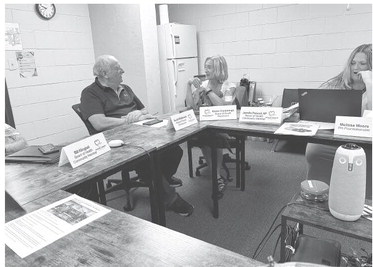Deadline pressure spurs state budget deal at 11th hour
When push comes to shove, Wisconsin leaders can set aside differences and move quickly to get things done.
That was the case last week when Gov. Tony Evers signed the new biennial state budget into law in the early morning hours of July 3. Earlier that week, Evers and Republican leaders in the legislature had announced they had reached major compromises on key funding areas including the University of Wisconsin System and childcare funding. This cleared sending the budget from the Joint Finance Committee to the full legislature for action. In an unprecedented move, both houses of the state legislature passed the budget in a single day on July 2, sending it to the Governor’s desk to be signed.
The speed at which the state government acted was noteworthy due to the months of wrangling that had taken place since the Governor announced his budget plan in February. Republican leadership in the legislature had quickly made it clear that they would be preparing their own budget rather than using the governor’s budget as a starting point.
For the past few months, area school officials cautioned local school boards not to expect a budget deal before fall which would make it a challenge to set local budgets. However the $111 billion state budget came into place in the end more as a reaction to what was happening in Washington D.C., with the imminent passage of a budget reconciliation bill that would have major impacts on state budgets. In particular dealing with the Medicaid reimbursement.
The state budget increases Wisconsin’s assessment rate from 1.8% to the federal maximum of 6% to access federal matching funds. In order for this to happen, the state budget would need to be passed before the federal budget bill was signed. The action by the state government secures $1.5 billion in funding for rural hospitals in the state.
The budget bill was supported by both of the area’s representatives.
“As a member of the Joint Finance Committee (JFC), I’ve worked with my colleagues over the past several months to craft a responsible state budget. Throughout this process, I listened to the people of the 69th Assembly District to learn about their priorities for our state’s two-year spending plan and advocated for as many of those as possible to be included in the final budget. After good-faith negotiations by legislative leadership with Governor Evers, I’m pleased that an agreement has been reached on several key components of the budget including tax relief and special education funding,” said Rep. Karen Hurd in a release about her support for the budget bill.
“A top priority for my constituents is reducing the tax burden, and the budget passed by the Legislature delivers $1.5 billion in tax relief. This plan includes expanding the second income tax bracket, as well as creating an income tax exclusion for individuals who are at least 67 years old. This exclusion applies to the first $24,000 of retirement income for single filers and the first $48,000 for marriedjoint filers. In addition, this proposal expands the sales tax exemption for residential electricity and natural gas to apply year-round.
“Another issue I heard often from constituents is increasing special education funding for our schools. This budget provides a historic increase of over $500 million in special education funding. This represents a 42% reimbursement rate in the first year of the budget and a 45% reimbursement rate in the second year.
“Another priority of the 69th District addressed in this budget is investing in improving our roads and bridges. We reauthorized the successful Agricultural Roads Improvement Program (ARIP) at $150 million over the biennium, and dedicated 20% of this funding towards bridge and culvert repairs. This $150 million investment is $100 million more than Governor Evers proposed. This budget also restores the general transportation aids (GTA) mileage aid rate increase that was line-item vetoed by the governor in the last budget. This veto primarily impacted towns across our state and is something that I have heard about from town officials across my district. In addition to this veto fix, the budget also provides a 3% increase in GTA in each year of the budget. These investments will make a real difference in rural communities across our state.”
“As with any legislation the size of the state budget, there are some parts of the final product I wish would not have been included and other items that I wish had been. However, the budget my colleagues and I on the JFC crafted addresses many of the key priorities for the people of my district and the state of Wisconsin which is why it earned my support.”
The 69th district includes Medford, Stetsonville and adjoining towns as well as all of Clark and portions of Chippewa and Marathon counties.
Rep. Rob Summerfield who represents the remainder of Taylor County as well as Price, Rusk and portions of Chippewa counties also voted in support of the budget bill.
“I’m happy to have voted for a responsible budget” said Rep. Summerfield. “This budget keeps Wisconsin on the right track and brings meaningful investments to the 68th Assembly District and the State of Wisconsin.”
He said the budget will deliver nearly $1.5 billion in tax relief on hardworking Wisconsinites, including the full elimination of the sales tax on natural gas and electricity. Thanks to the conservative-led legislature, the governor’s proposal to increase taxes by over $3.7 billion was stopped, and over 300 unnecessary state government positions were eliminated. The legislature also helped our local governments with transportation funding by providing $150 million for the Agriculture Road Improvement Program and a 3% increase in General Transportation Aid. These investments are all significant victories for our community.
In budget negotiations, Rep. Summerfield said he prioritized the needs of rural Wisconsin and secured funding for the County Forest Administration Grant, the Sustainable Forestry Grant, and the Wildlife Habitat Grant.
“Knowing how important and impactful the forestry industry is for the 68th district, we are pleased to see this investment in our area,” said Rep. Summerfield.
This budget also included provisions that are focused on expanding access to critical mental health services in our communities, including funding to establish a behavioral health hospital and funding to renovate and re-open the L.E. Phillips Libertas Treatment Center.
“Another meaningful investment for our area was the increase in funding for mental health services in our community,” said Rep. Summerfield. “I am proud to have voted for a budget that supports our region in such an impactful way.”
The budget also drew support from state agricultural groups.
In a statement, the Wisconsin Farm Bureau Federation applauded the efforts of legislative leaders and Gov. Evers in enacting the 2025-2027 state biennial budget.
This budget includes continued investments across agriculture, advancing funding for rural infrastructure, agricultural conservation, processing capacity, industry innovation and mental health services for farmers. As part of the budget, it also reauthorizes the Agricultural Road Improvement Program (ARIP) with $150 million in funding to upgrade farm roads and bridges, ensuring the safety, reliability and long-term viability of the rural road network that Wisconsin agriculture depends on.
The $150 million provided in the last budget cycle supported 92 road grants to local governments across the state, enabling upgrades to rural roads that carry more than 15 million tons of agricultural goods annually, sustaining the farming and forestry businesses that contribute more than $12 billion a year to Wisconsin’s economy.
“Passing the state budget and reauthorizing ARIP was a must for Wisconsin agriculture,” said Wisconsin Farm Bureau President Brad Olson. “Farmers rely on these rural roads to move products, access markets, and operate efficiently.”
According to the Farm Bureau, the budget as passed and signed into law provides funding across a wide range of programs that matter to Wisconsin farmers. These investments reflect the diverse needs of agriculture and the continued effort to strengthen rural communities and the farm economy. Support for key programs include:
• Dairy Processing Grant Program: $1.2 million allocated to expand dairy processing capacity, drive innovation and improve efficiency.
• Meat Processor Grants: $1.6 million provided for facility upgrades and improvements.
• Producer-led Watershed Grants: Continued funding of $2 million to support farmer-led initiatives enhancing soil health and reducing runoff.
• Cover Crop Insurance Premium Rebate Program: Continued funding of $1.6 million to promote cover crop use for soil health and water quality improvement.
• Nitrogen Optimization Grant Program: Increased funding to $2 million for farmer-led nitrogen use research to enhance water quality and soil health.
• Farm Center Mental Health Vouchers: Continued funding of $100,000 to provide mental health support services for farmers and their families.
• County Conservation Staff: Nearly $30 million to support county conservation staff in implementing agricultural and conservation programs.
• Food Security Grant Program: $10 million to provide grants to nonprofit food banks in Wisconsin to purchase Wisconsin grown and processed food for those in need.
• CDL Driver Training Grant Program: $500,000 to cover a portion of tuition costs to train new commercial drivers in Wisconsin.
• Division of Animal Health Staff: Provides three staff positions to DATCP’s Division of Animal Health to support potential animal disease outbreak coordination and response.
Additionally, in a late-night amendment, $20 million was set aside to support a Dairy Cattle Innovation Program aimed at helping farmers invest in on-farm equipment and technology upgrades that improve efficiency, animal care and long-term viability in Wisconsin’s dairy sector. Program details are still forthcoming but will be developed further through the legislative process in the weeks ahead.
Olson added, “These investments recognize the breadth and significance of Wisconsin’s $116 billion agricultural economy, which supports one in nine jobs across the state. The budget’s targeted funding for agriculture reinforces its role as the foundation of rural Wisconsin, fueling local economies, supporting families and driving innovation across the supply chain. By supporting agriculture in this budget, state leaders are making a direct investment in the strength and future of our rural communities.”



